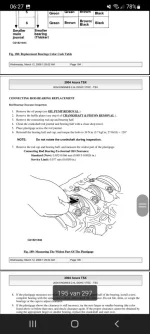I know - My question is whether the product still showing API SL means it's the same old formulation as before when this community dubbed it "GC" as opposed to being an updated formula. "GC" had LL-01 until 2018.
Yes and no. Did N55 prompt updating the spec? Probably not. The Internet says it was the N20/B58. But - better oxidation performance is better oxidation performance. Something I haven't brought up yet is that one of the same rebuilders I was talking to mentioned that BMW observed wear issues in the Valvetronic system which should not be happening. Then there's the N52 cam ledge wear. Did these things have any part to play in the 2018 revision? Do we actually really know? I was also told that something with Castrol was found responsible for the upper engine wear issues (e.g. Valvetronic, not bearings) and was part of the factory switch away from Castrol. I took that with a grain of salt.
Back in the M50/52/54/62 engine days, we didn't come to accept rod bearings, cam bearings, and this Valvetronic/VANOS stuff failing as normal (except VANOS rubber seals, which folks like Beisan made seal kits for). We've become quite accustomed to stuff that never used to happen becoming almost common.
Yes PP goes on sale for good prices, but the Euro LX 0W30 doesn't spec a single BMW approval or "recommended" BMW application and doesn't meet A3 (does show C2/C3). Euro L 5W30 is LL-04 at least. Last time around I did not elect to contradict TIS and go LL-04. TIS has been updated and it STILL says that LL-04 is not for use in NA with gasoline despite our sulphur regs being a lot tighter now. PP is on sale at CT right now - might go with a jug of Euro L.


